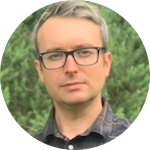About This Project
This project proposes a novel approach to engineer ancestral enzymes in order to tackle the global problem of textile waste at an immediate and local level.
Ask the Scientists
Join The DiscussionWhat is the context of this research?
The textile industry is a major contributor to climate change, with an estimated 65 - 92 million tons of textile waste generated annually (1). In the US alone, 65% of textile waste ends up in US-based landfills and of the 15% that is recycled within the US, up to half of this is simply shipped to other countries (2). This shifts the economic, social, and climate burden to developing nations and causes textile waste to be diverted from at-capacity landfills into water streams, ultimately ending up in oceans (3). Strikingly, an estimated 35% of global microplastics entering the ocean are from synthetic textiles (4).
What is the significance of this project?
In modern clothing, synthetic plastic materials are interwoven with plant-based fibres, meaning that deploying enzymes capable of degrading a single type of material will likely not be sufficient to significantly reduce textile waste (5). In addition, solutions must be more disruptive than simply targeting the final landfills in textile waste supply chains (6, 7). Large-scale solutions ignore dispersed textile waste in communities, small locations where fabric items are already mixed and non-separable, and points of collection such as charity clothes donations bins that are overwhelmed with materials non-suitable for recycling and that incur a carbon-emission cost when shipping to landfill (8).
What are the goals of the project?
Outcomes from this project are engineered enzymes more capable of degrading individual components of textile waste. Importantly, this project prioritises enzymes capable of working in combination with another so they can be employed directly in areas where textile items are already mixed and contain a diverse set of interwoven components. Finally, these solutions are designed to be employed at small scale, allowing disruption to the overall textile waste chain, rather than requiring upscaling of laboratory techniques. This helps to navigate the ‘valley of death’ in moving from early proof of concept more rapidly (technology readiness level 4 through to level 7) and allows more immediate action on climate change that would directly affect the environment and humans living within it.
Budget
This budget is directly tied to consumables for mutagenesis and high-throughput assays. It also funds a research assistant at one day a week for a year to conduct function assays.
 Project Timeline
Project Timeline
Project completed by June 30, 2025
Jun 30, 2025
Project Completion
Meet the Team
Affiliates
Affiliates
Gabriel Foley
Dr Gabriel Foley has expertise in ancestral sequence reconstruction and phylogenetics that will guide the overarching design and interpretation of this project. His research focuses on developing methodology for ancestral sequence reconstruction and he has a track record of generating novel protocols that combine computational analysis and wet lab experimentation.
Mikael Boden
Mikael Bodén is a group leader in bioinformatics and appointed as an Associate Professor at The University of Queensland. He has a PhD in computer science, AI and statistical machine learning but has spent the last 15 years in biological research environments, including the Institute for Molecular Bioscience/ARC Centre of Excellence in Bioinformatics and the School of Chemistry and Molecular Biosciences, where he is currently located. Funded by ARC, NHMRC and MRFF, research in his group centres on machine learning and data integration in genomics and proteomics, phylogenetics, and protein engineering. Bodén is the founding director of UQ’s postgraduate program in bioinformatics.
Mikael Bodén has expertise in statistical machine learning that will inform the study design and selection of machine learning approaches. In additional to machine learning methods, Bodén and his group have developed ancestral reconstruction to engineer novel proteins that perform in conditions suitable for medical, industrial and agricultural applications. This experience will inform methodological decisions, specifically to alleviate concerns around generalisation from combinatorial (sequence) data and its integration with biological information.
Marc Morris
Dr Marc Morris is a biochemist with experience in the structural and functional characterisation of enzymes. Currently, alongside Mikael Bodén and other collaborators at the University of Queensland, he executes high-throughput kinetic assays and structural analyses on enzymes to inform key drivers of activity differentiation within large protein superfamilies with particular reference to the evolution of beta-lactamase activity. Previous experience focussed on the study of novel or cryptic enzymes derived from the metagenomic study of environmental microbial communities, including nylon-degrading enzymes, enzymes involved in cellulose & hemicellulose metabolism, as well as alkane metabolism.
Project Backers
- 0Backers
- 0%Funded
- $0Total Donations
- $0Average Donation


